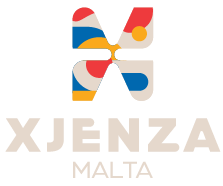Early detection of corrosion in maritime industries to reduce costs and protect the environment
Industry structures corrosion in the global industry is an economic and environmental issue.
In fact, regular corrosion checking is crucial to secure safety and expand lifetime in the marine structures. As an example, traditional oil and gas, windmill and offshore solar farms are being affected by corrosion equally which can result in catastrophic environmental impacts. According to NACE International Institute this issue costs the maritime industry between $50 and $80 billion yearly.
To address this problem, in March 2018, the Project Coordinator Dr João Tedim, of the University of Aveiro, Portugal, and partners SINTEF Industry in Norway, and AquaBioTech Group in Malta, have been collaborating on the MarTERA project “SMARTAQUA, Development of Smart Nanostructured Layers for Sensing Corrosion in Aquatic Structures”. The project aimed to develop a sensing nanolayer, incorporating smart additives combining colorimetric with magnetic detection, to be applied directly on steel structures, to provide cost-effective, reliable means of detecting corrosion degradation, hence monitoring the overall integrity of the structure.
The Hon. Owen Bonnici, Minister for Equality, Research and Innovation participating in the online closing event said that: “What is particularly precious about this project is that it was undertaken through a consortium of three partners from three different European countries; Malta, Portugal and Norway, which results in priceless knowledge exchange.
Over 90% of all goods entering or leaving Malta pass through our ports. Hence, the vital importance of the sector is undeniable and investments in this sector are essential to ensure that the sector continues evolving with the needs of today.”
The SMARTAQUA partners ran laboratory assays to test if the coatings produced were effective in detecting corrosion. The University of Aveiro tested the coatings on a lab setting and the AquaBioTech Group tested the same coatings in the field. Both lab and field tests showed very promising results. The coating is serving its purpose and a colour change is observed on the coating when corrosion occurrs on steel substrates.
After three years, the project has now concluded and AquaBioTech Group and Malta Council for Science and Technology organised an online event on Wednesday, November 3rd . The topics discussed at the occasion were the importance of collaborative innovation, outputs from the key researchers during the project life cycle and future innovations in aquaculture structures, offshore wind foundations, oil and gas structures and ship hulls.
During his opening speech, Dr Jeffrey Pullicino Orlando- Executive Chairman of the Malta Council for Science and Technology – said that: “SMARTAQUA is one of the successful projects that received funding from MCST, Fundação para a Ciência e Tecnologia (FCT) and the Research Council of Norway, as well as additional funding from the European Commission. Now that it has reached its maturity, MCST acknowledges that is has supported a remarkable project that focuses on developing a corrosion sensing technology that can be applied to various aquatic structures and ship hulls.”
He added that: “Safeguarding our seas is critical to securing the livelihoods of many industries that serve as pillars of the Maltese economy – fisheries, aquaculture, maritime transportation and tourism. MCST will continue to promote international collaboration in blue economy research to help capitalise on the results obtained through programmes, such as MarTERA, and continue developing local capacity in this sector.”
Local and international stakeholders attended the event who followed technical presentations by the project researchers.
Note: This project has received funding from the Research Council of Norway (through the program of Petromaks II, project 284002), Foundation of Science and Technology in Portugal and the Malta Council for Science and Technology via the MarTERA – ERA-NET Co-fund scheme of H2020 of the European Commission.


